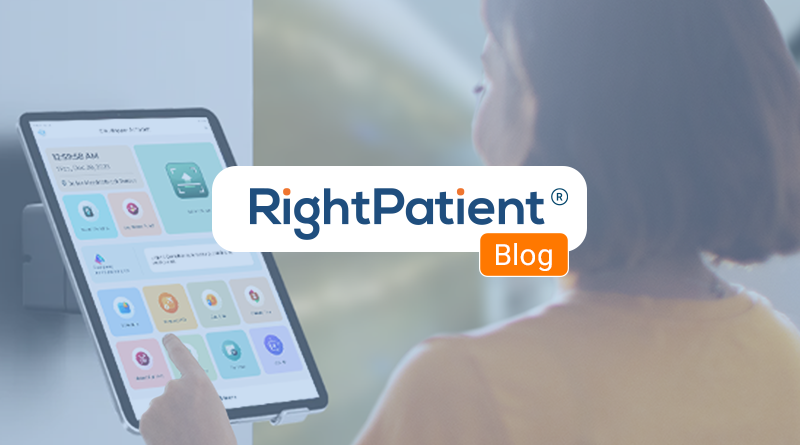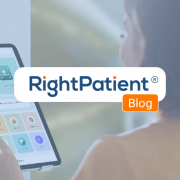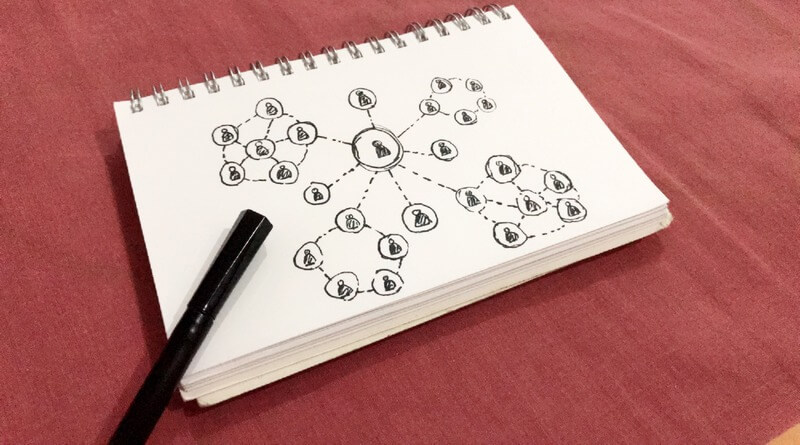Navigating Biometric Technology Adoption in Healthcare: Benefits and Challenges

Biometric technology has been a game-changing innovation in healthcare, offering unparalleled accuracy in patient identification and convenience. However, like any technology, it brings with it a set of challenges that need to be carefully navigated. In this article, we will delve into both the advantages and drawbacks of biometrics in healthcare, focusing particularly on the invaluable insights gathered from the ‘Biometrics in Healthcare’ LinkedIn Group.
The use of biometrics in healthcare is not a new concept; it has been steadily gaining traction over the years. Its popularity stems from its potential to enhance patient identification, streamline Single Sign-On (SSO), and ensure HIPAA compliance. The technology has been reshaping the healthcare landscape, with key players, such as RightPatient, leading the charge.
RightPatient has been at the forefront of the biometric revolution in healthcare. Its multi-modal biometric solution is a testament to the organization’s commitment to addressing modern healthcare challenges. The solution not only complies with HIPAA regulations but is also in line with recent industry trends and regulatory mandates, including CMS’s Interoperability Rules and Joint Commission Standards. The focus is clear: prioritize patient safety and prevent errors.
Patient misidentification has long been a significant issue in healthcare. It has been estimated that 10-20% of medical errors can be attributed to patient misidentification. This results in duplicate records, which cost hospitals thousands of dollars, and a rise in medical identity theft cases. RightPatient has addressed this issue head-on, producing impressive results in numerous case studies. The solution has led to substantial cost savings and a marked reduction in errors.
But RightPatient is not just a quick, contactless mobile identification solution. It offers a seamless patient experience while protecting their sensitive health information. In anticipation of the shift towards contactless solutions in the post-COVID-19 world, RightPatient has positioned itself to adapt swiftly. Its cloud-based solution is scalable, allowing for a rapid response to changes and providing real-time updates without the need for on-site hardware.
The efficacy of RightPatient’s solution is best illustrated in the case of International Health Management. This NGO, facing issues with inaccurate patient identification, turned to RightPatient for help. The introduction of RightPatient’s biometric system led to a significant improvement in accuracy, speed, and security, serving approximately 5000 patients since 2014. The solution effectively eliminated duplicate records, medication errors, and instances of fraud, leading to a safer, more efficient healthcare environment.
However, it is crucial to remember that while the benefits of biometric technology in healthcare are numerous, there are also limitations. The technology’s actual implementation, as well as the infrastructure used to process data, can impact its pros and cons. As such, it is essential to consult with a knowledgeable executive before making decisions regarding adoption.
In conclusion, RightPatient is dedicated to ensuring that the right patient receives the right care every time. Discover more about how RightPatient can enhance healthcare operational efficiency by enquiring about a demo at https://www.rightpatient.com/contact/. While biometric technology in healthcare undoubtedly offers many benefits, it is important to understand its limitations and make informed decisions about its adoption.
How to Use RightPatient
- Understand the Technology: Familiarize yourself with the strengths and constraints of biometric modalities in healthcare. Learn how RightPatient leverages multi-modal biometrics to accommodate diverse medical settings. For more information, visit biometrics in healthcare.
- Implement the Solution: Implement RightPatient's solution in your healthcare setting. It provides a quick, contactless mobile identification solution that ensures a seamless patient experience while protecting their sensitive health information. Learn more about the Contactless mobile identification solution.
- Monitor and Adapt: Monitor the effectiveness of the solution and adapt as necessary. RightPatient's cloud-based solution offers scalability, enabling a rapid response to changes. Understand how to adapt swiftly to changes in the healthcare environment.
Frequently Asked Questions
- What is the role of biometrics in healthcare?
Biometrics play a crucial role in healthcare by enhancing patient identification, streamlining Single Sign-On (SSO), and ensuring HIPAA compliance. It helps in reducing medical errors, eliminating duplicate records, and preventing medical identity theft. - What is RightPatient?
RightPatient is a leading provider of biometric solutions for patient identification in healthcare. It offers a multi-modal biometric solution that complies with HIPAA regulations and aligns with industry trends and regulatory mandates. - What are the benefits of RightPatient?
RightPatient offers a quick, contactless mobile identification solution that enhances patient safety and prevents errors. It also provides real-time updates without the need for on-site hardware, making it a scalable solution. - What are the limitations of biometric technology in healthcare?
While biometric technology offers numerous benefits, its implementation and the infrastructure used to process data can impact its pros and cons. Therefore, it is essential to consult with a knowledgeable executive before making decisions regarding adoption.






